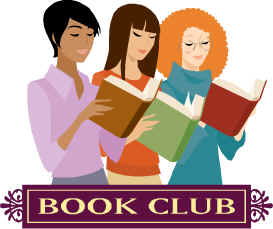
Hannibal Free Public Library
The Known World
by
Edward P. Jones
November 24, 2008
 |
Hannibal Free Public Library The Known World by November 24, 2008 |
The
Known World by Edward P. Jones
won the 2004 Pulitzer Prize and the National
Book Critics Circle Award.
The novel is set in antebellum
Virginia.
Central to the novel is Henry Townsend, a black
farmer, bootmaker, and former slave.
He becomes proprietor of his own
plantation as well as of his own slaves. When
he dies, his widow, Caldonia, succumbs to
profound grief, and things begin to fall
apart at their plantation: slaves take to
escaping under the cover of night, and
families who had once found love beneath the
weight of slavery begin to betray one
another. Beyond the Townsend estate, the
known world also unravels: low-paid white
patrollers stand watch as slave
"speculators" sell free black
people into slavery, and rumors of slave
rebellions set white families against slaves
who have served them for years.
Edward
P. Jones was born and raised in Washington,
D.C. A recipient of the PEN/Hemingway Award,
a Lannan Foundation Grant, and a National
Endowment for the Arts fellowship, Jones was
educated at Holy Cross College and earned his
MFA at the University of Virginia. He has
taught fiction at Princeton University,
George Mason University, and the University
of Maryland. His first book, Lost in the
City, was short-listed for the National
Book Award. Jones's work has appeared in
numerous journals and magazines, including The
Paris Review, Essence, and Ploughshares.
He lives in Arlington, Virginia.
For
an interview with the author, please consult http://www.pbs.org/newshour/bb/entertainment/july-dec03/jones_9-19.html#
In
The Known World, Jones' technique,
which attempts to reinvent the novel form, is
just as subversive as the side of slavery he
presents. On one level his prose is direct
and plainspoken, with a colloquial, decidedly
nonliterary cadence, but it is no less
evocative or powerful for being so modest. On
another level, The Known World is
about community and context, and Jones
tailors the novel's structure to play up
these themes. He writes from a number of
points of view, not just Henry, his wife
Caldonia, and each of their slaves, but also
Sheriff John Skiffington, his untrustworthy
cousin and deputy Counsel, and his three
rowdy patrollers, among many others. As one
character states, "We are all worthy of
one another," and Jones captures this
sense of potential equality through the
congregation of voices. Every story is worthy
of being told.
Adapted
from information found at http://www.readinggroupguides.com/guides3/known_world1.asp;
http://www.harpercollins.com/author/authorExtra.aspx?isbn13=9780060557546&displayType=readingGuide;
http://www.independent.co.uk/arts-entertainment/books/reviews/the-known-world-by-edward-p-jones-554117.html;
and http://www.popmatters.com/books/reviews/k/known-world.shtml